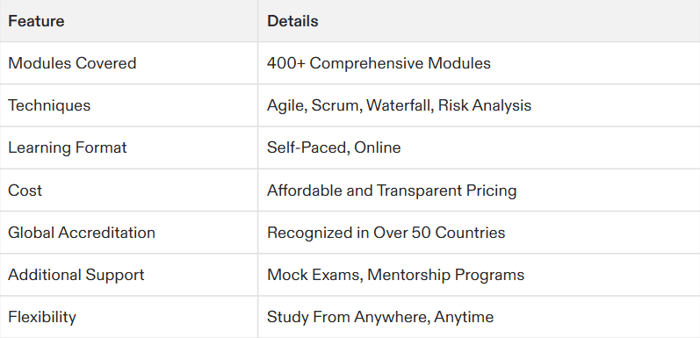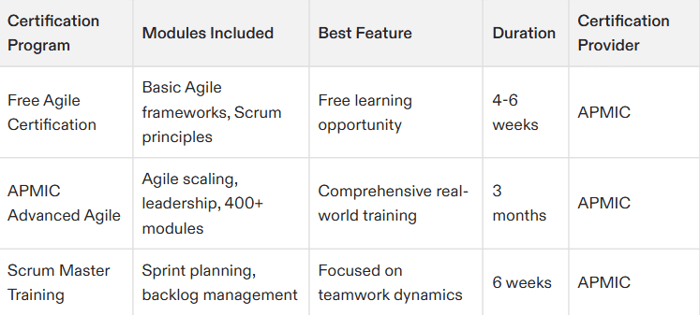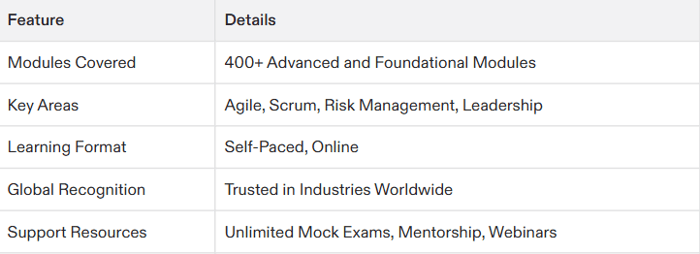Table of Contents
- The Ultimate Guide to SSGI Project Management Certification
- What is SSGI Project Management Certification?
- Why Choose SSGI Project Management Certification in 2025?
- Who Should Enroll in SSGI Project Management Certification?
- Skills You'll Gain from SSGI Certification
- How to Earn the SSGI Project Management Certification
- Advantages of SSGI Project Management Certification
- 10 Less Commonly Known Facts About SSGI Project Management Certification
- Final Thoughts
- FAQs
Okay, let’s go! Project pros, buckle up! You should think of project management certifications as spices in your professional kitchen: they can make your career rather bland, or Michelin-star worthy! Aiming for the SSGI Project Management Certification? Smart move! It’s not just another piece of paper, it’s your golden ticket to project management mastery. Come, let’s delve into this ultimate guide, designed for 2025 and beyond, so you don’t just keep up with the trends, you set them.
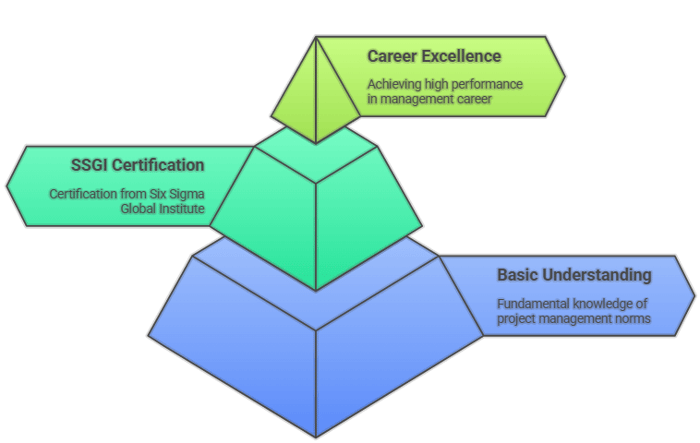
The Ultimate Guide to SSGI Project Management Certification
As we continue to navigate through 2025, it is becoming increasingly important to stay ahead in the fast evolving world of project management, and that means over and above a basic understanding of the norms. The SSGI (Six Sigma Global Institute) Project Management Certification is suddenly a bright light for professionals who are trying to gain control of this combination. This guide is intended to provide you with all the information you may require about the SSGI certification to help you perform at your best in your project management career.
If you're still exploring the best certification options, check out the Top Project Management Certifications to compare different programs and find the right fit for your career goals.
What is SSGI Project Management Certification?
The SSGI Project Management Certification is not just a credential, it is a stamp of excellence. It is like having a 'Verified' badge on your professional profile which proves that you know how to lead projects to success. This certification is awarded by the Six Sigma Global Institute and is focused on integrating Six Sigma principles with today's project management practices.
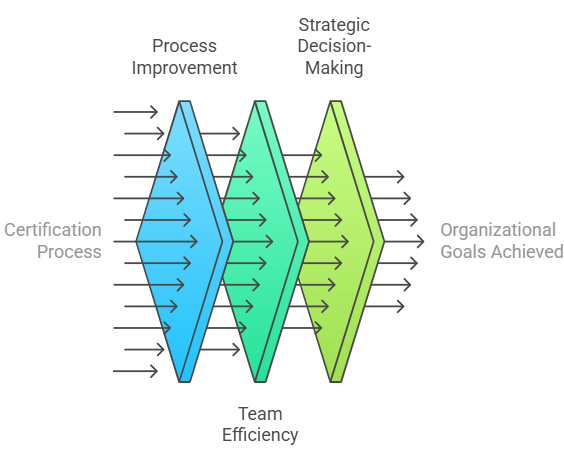
This certification is meticulously crafted to boost:
Process Improvement: Streamlining workflows and eliminating bottlenecks.
Team Efficiency: Building cohesive, high-performing teams.
Strategic Decision-Making: Making informed choices that align with organizational goals.
Whether you are supervising large operations or a small to medium sized teams, the SSGI certification enables you to achieve results at every stage of the project. It integrates Lean principles, Six Sigma methodologies and strong quality management so it is important for professionals in most industries including IT, healthcare, manufacturing and finance.
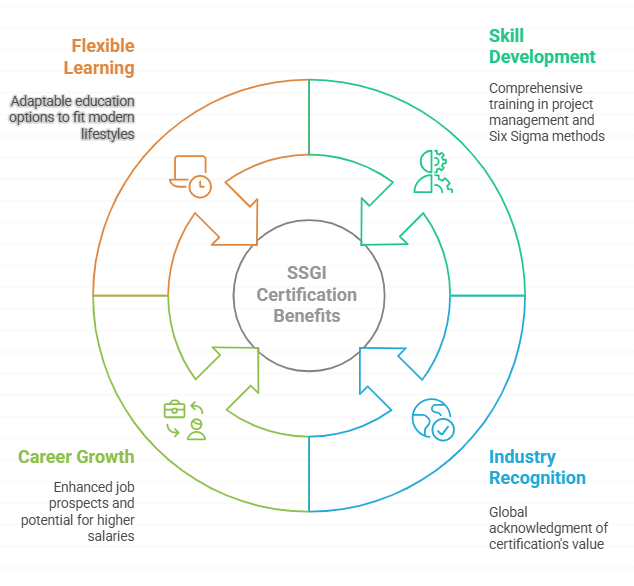
Why Choose SSGI Project Management Certification in 2025?
In a world where project landscapes are rapidly changing, the SSGI Project Management Certification offers several unique advantages:
Comprehensive Skill Development: It’s time to move beyond the surface. This certification aligns Six Sigma’s data driven methods with core project management skills and knowledge. This enables you to deliver operational excellence and project outcomes that lead to real improvements.
Industry Recognition: SSGI is a globally renowned body with very high standards and the SSGI certification is recognized worldwide. This means that having this certification will show that you can manage projects, control processes, and provide stable performance. It is a clear message to your employers that you are willing to go the extra mile in your career.
Career Growth: In the current job market, a certification can help to distinguish you. Employers look for certified individuals who can cut costs, increase efficiency, and provide measurable outcomes. The SSGI Project Management Certification not only enhances your CV, but also leads to management positions and higher remuneration.
Flexible Learning Options: Due to the needs of the modern workers, many providers, including APMIC, provide flexible online modules. These programs provide the ability to combine high quality education with the flexibility required to meet the demands of work, life, and study.
The SSGI Project Management Certification is not just a credential, it is a passport to career advancement and organizational impact. It shows commitment to ongoing learning and mastery of project management principles that are highly valued in today’s business environment.
If you're looking to build a solid study foundation, make sure to explore the Top Project Management Certification Books for expert-recommended resources that can accelerate your learning.
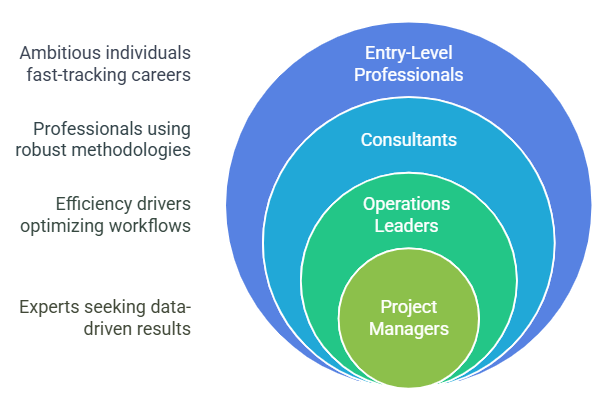
Who Should Enroll in SSGI Project Management Certification?
Are you wondering if the SSGI Project Management Certification is right for you? Here's a quick rundown of the ideal candidates:
Project Managers: Those eager to deepen their expertise, implement data-driven strategies, and achieve measurable results.
Operations Leaders: Individuals looking to eliminate inefficiencies, optimize workflows, and drive better outcomes across their departments.
Consultants: Professionals who want to ensure their recommendations are backed by robust methodologies and data-driven insights.
Entry-Level Professionals: Ambitious individuals aiming to fast-track their careers with practical knowledge and recognized credentials.
If you're passionate about managing projects efficiently, ensuring high-quality outcomes, and driving organizational success, then the SSGI Project Management Certification is an ideal fit for you. It equips you with the skills and knowledge to excel in any project management role.
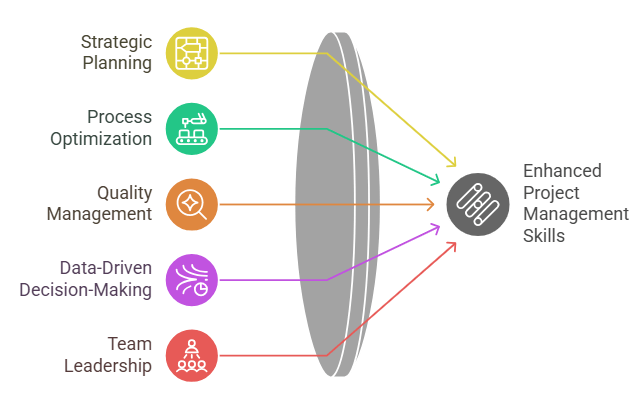
Skills You'll Gain from SSGI Certification
Earning the SSGI Project Management Certification is like upgrading your professional toolkit. Here are some of the key skills you'll acquire:
Strategic Planning Tools: Master the art of setting objectives that align with organizational goals. Learn how to develop comprehensive project plans that drive success.
Process Optimization Techniques: Identify, analyze, and improve inefficiencies within any workflow. Implement Lean principles to eliminate waste and streamline processes.
Quality Management: Apply Six Sigma tools to ensure consistent project excellence. Learn how to monitor and control project quality to meet and exceed stakeholder expectations.
Data-Driven Decision-Making: Use the DMAIC methodology (Define, Measure, Analyze, Improve, and Control) to steer project strategy. Make informed decisions based on data analysis rather than intuition.
Team Leadership: Create high-performing teams with structured communication and collaboration models. Motivate team members, resolve conflicts, and foster a positive work environment.
With platforms like APMIC, you gain access to over 400 practical modules to upskill and succeed. These modules provide hands-on experience, real-world examples, and practical tools to apply your new skills immediately.
How to Earn the SSGI Project Management Certification
Ready to take the plunge? Here's a step-by-step guide to earning your SSGI Project Management Certification:
Understand Certification Levels:
Yellow Belt: A basic introduction to Six Sigma principles and project management.
Green Belt: An intermediate level that focuses on applying Six Sigma tools to project management.
Black Belt: An advanced level for experienced professionals who lead complex projects and drive organizational change.
Master Black Belt: The highest level, designed for seasoned professionals who mentor others and implement Six Sigma strategies across the organization.
Select Your Training Provider: Choose a recognized institution like APMIC that offers a well-structured curriculum, experienced instructors, and access to digital resources. A comprehensive training program will ensure you fully understand Six Sigma principles and how to apply them to project management.
Complete Training Modules: Engage in coursework, participate in real-world examples, and complete hands-on projects. This will solidify your understanding of Six Sigma principles and provide practical experience in applying them to project management scenarios.
Take the Certification Exam: Test your knowledge and application of Six Sigma principles through case studies, practical scenarios, and multiple-choice questions. Passing the exam demonstrates your competency in project management and Six Sigma methodologies.
Implementation and Career Application: Once certified, apply your knowledge to eliminate project redundancies, exceed stakeholder expectations, and boost client satisfaction. Use your new skills to drive project success, improve team performance, and achieve organizational goals.
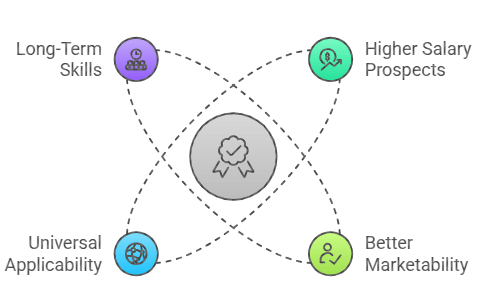
Advantages of SSGI Project Management Certification
Why do professionals swear by SSGI? Here are some compelling advantages:
Higher Salary Prospects: Certified professionals routinely earn 20-30% more than their non-certified peers. The SSGI certification demonstrates your value to employers and justifies a higher salary.
Better Marketability: The certification adds significant value to your profile, demonstrating expertise to potential employers. It sets you apart from other candidates and increases your chances of landing a job or promotion.
Universal Applicability: The principles taught aren't limited to project managers; operations heads, HR managers, and even marketing professionals can adopt these strategies. The skills you learn are transferable across industries and functional areas.
Long-Term Skills: The methodologies are timeless, ensuring skills you can lean on throughout your career. Whether you're managing a small team or leading a large-scale initiative, the principles of Six Sigma and project management will always be relevant.
Real-World Applications of SSGI Certification
Professionals equipped with an SSGI Project Management Certification have driven significant improvements in their organizations. Here are a few examples:
Shortening project timelines by 20%, thanks to process adjustment techniques.
Reducing budget overflow by integrating data-led decision-making tools.
Enhancing team productivity and morale through structured workflow practices.
These real-world applications demonstrate the tangible benefits of the SSGI Project Management Certification. By applying the principles and methodologies you learn, you can drive project success, improve organizational performance, and achieve your career goals.
10 Less Commonly Known Facts About SSGI Project Management Certification
Want to impress your colleagues with some insider knowledge? Here are 10 less commonly known facts about SSGI Project Management Certification:
SSGI's Roots in Motorola: Six Sigma, the foundation of the SSGI certification, was first developed at Motorola in the 1980s to reduce defects in manufacturing processes. (Source)
Integration with Agile: While SSGI emphasizes structured methodologies, it can be effectively integrated with Agile project management approaches for enhanced flexibility. (Source)
Certification Renewal is Key: SSGI certifications often require periodic renewal through continuing education or refresher exams to ensure professionals stay updated with the latest industry practices.
SSGI Principles in Healthcare: Healthcare organizations have successfully used SSGI principles to improve patient care, reduce medical errors, and streamline administrative processes. (Source)
Customizable Frameworks: SSGI methodologies can be customized to fit various project sizes and complexities, making it adaptable for both small teams and large-scale initiatives. (Source)
Beyond Project Managers: SSGI principles aren't limited to project managers; operations heads, HR managers, and even marketing professionals can adopt these strategies. (Source)
Reduced Environmental Impact: SSGI-certified professionals can play a role in reducing waste and improving resource efficiency, contributing to more sustainable business practices.
SSGI in Government: Government agencies around the world have used Six Sigma principles to improve public services, reduce costs, and enhance citizen satisfaction. (Source)
Focus on Employee Engagement: Successful SSGI implementations often involve engaging employees at all levels, fostering a culture of continuous improvement and collaboration.
Statistical Software Proficiency: SSGI professionals often gain proficiency in statistical software packages like Minitab and SPSS to analyze data and make informed decisions. (Source)
This makes the SSGI Project Management Certification uniquely valuable when combined with traditional Six Sigma principles. This dual approach enhances strategic decision making, quality management and efficiency, so professionals are more effective at leading project outcomes and organizational process improvement. For a structured, in-depth learning experience, enroll with trusted programs like APMIC to achieve certification and excel in your industry.
Final Thoughts
The SSGI Project Management Certification bridges the gap between theoretical knowledge and practical application, making certified professionals invaluable to any team or organization. By mastering its principles, you not only future-proof your career but also contribute significantly to organizational success.
Whether you're taking charge of your career for the first time or looking to enhance an already stellar trajectory, this certification offers everything you need to succeed. And if you're serious about acing the PMP exam and supercharging your project management skills, remember that we have the best PMP Certification Prep Course available at APMIC. Choose a trusted training provider like APMIC to begin this exciting learning adventure today!
FAQs
What are the prerequisites for SSGI Project Management Certification?
Prerequisites vary depending on the certification level. Generally, no prior experience is required for Yellow Belt, but Green Belt and higher levels may require some project management experience or completion of lower-level certifications.
How does SSGI Project Management Certification compare to PMP?
While both certifications enhance project management skills, PMP (Project Management Professional) focuses on broader project management principles, whereas SSGI integrates Six Sigma for process improvement. SSGI is ideal for those wanting to combine project management with quality and efficiency.
Is SSGI Project Management Certification worth it for my career?
Yes, especially if you are looking to improve efficiency and quality in projects. The certification demonstrates your ability to apply Six Sigma methodologies to project management, making you a valuable asset in industries like manufacturing, healthcare, and IT.
Where can I find reputable SSGI Project Management Certification training?
Reputable training providers include APMIC, which offers comprehensive courses designed to prepare you for the certification exams. Look for providers with experienced instructors and a strong track record of success.
How often should I renew my SSGI Project Management Certification?
Renewal policies vary depending on the certifying body. Typically, you will need to renew your certification every few years by completing continuing education units (CEUs) or passing a refresher exam.
What is the DMAIC methodology in SSGI Project Management?
DMAIC stands for Define, Measure, Analyze, Improve, and Control. It is a data-driven improvement cycle used to optimize and stabilize processes. It forms the core of Six Sigma and is a key component of the SSGI Project Management Certification.



